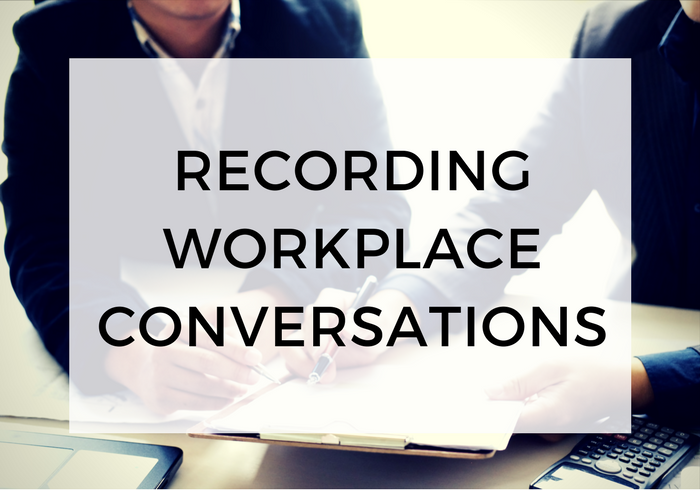Insights
A question we are becoming asked more frequently is whether the employer or the employee can record workplace conversations, predominately disciplinary or grievance hearings. Our advice on this matter is preferably not to but to have someone present to take notes of the meeting instead. However, with most average mobile phone now having the means to record, with or without the employer's permission, most employees have the capability to record conversations which is starting to make this a real issue all employers should be aware of.
The main reasons for our advice being to avoid recording meetings is due to a few issues, firstly is if the technology fails and you have solely relied on the phone or recording device to document the meeting you could be left in the situation of not being able to produce accurate evidence as to what was (or was not!) said. Secondly is that it is not unheard of for these types of meetings to become heated and there is the risk that things are said in the heat of the moment which in all honesty the employer would not want to be aired at a later date!
Employees can use the recordings as a means of trying to demonstrate bullying or harassment and whilst 9 out of 10 times these meetings run smoothly there will be the occasion when a manager may “loose it” and perhaps use a tone or vocabulary which is inappropriate, even if they have been provoked into doing so it would not be seen to be acceptable! There have been occasions when if it comes to light that there are these type of recordings that tribunal claims that are otherwise quite weak end up being settled, perhaps even for above average amounts, because the employer doesn’t want those recordings heard in the public domain!
Employers may think that if an employee asks your permission to record a meeting and permission is refused that would be the end of the matter. Unfortunately this is not the case. We are aware of a recent case which resulted in a college in Scotland had no option but to accept the resignation of its chairman rather than discipline him, after it came to light he had covertly recorded a meeting using a special pen fitted with a recording device! The content of the meeting could have caused an issue with the college had it been publically aired.
Additionally there is a well-known Employment Appeal Tribunal case of Amwell School v Dogherty UKEAT/0243/06 when Mrs Dogherty had covertly recorded her own disciplinary hearing but also the private meetings held there afterwards by the disciplinary panel in order for them to determine the outcome of the disciplinary hearing.
A surprising outcome was that the Employment Appeal Tribunal concluded that it was reasonable to admit the evidence of the recording of the disciplinary hearing provided the employer had the evidence in advance of the tribunal hearing, in both transcript form and the original recording, so it could verify the accuracy of the transcription.
However, when it came to the private deliberations having been recorded, the EAT was mindful of the disciplinary panel expecting that their conversations were private and that a full and frank exchange of views couldn’t take place without that. Therefore the evidence from that part of the recording was not admissible. The EAT did however state that if the recording of a private meeting revealed evidence of discrimination it would be admissible.
Many of our clients have wording in the employee handbook which specifies that that recording is prohibited – while that may deter some, clearly it won’t prevent those determined to record such meetings in the hope of catching management out! Employers need to be aware that they should never say anything that they aren’t prepared to have thrown back at them later and be aware that there is a clear message by these two cases of: don’t do or say anything in a formal meeting of this kind that you aren’t prepared to stand by!






